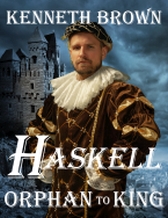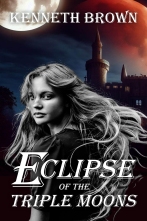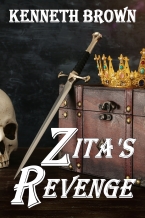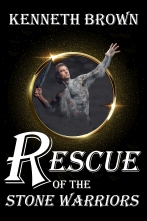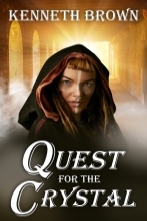Adgitize Press
What I Learned from Reading Lee Child Books
By: Ken Brown
Published: 4/25/2018
Write Like Lee Child
I'm listening to the book, Personal by Lee Child.
Jack Reacher and the person who's working with him, Casey Nice, have just broken out of a tense situation where they were captured. They need to leave before more bad guys get to the location.
Before they leave Reacher wants to look for something he's sure is in the building. (Read the book if you want to know what they're looking to find.)
Jack is looking and he knows and Casey knows the bad guys are on their way to capture them or even kill them.
Casey said, "Hurry Reacher"
Jack keeps looking.
"They're coming."
Jack keeps looking, Lee child does a good job describing how Jack searches for the object he desires. A detailed list of corners, cars, cabinets, desks, etc.
"We gotta go now."
Jack thinks to look somewhere else. Lee Child describes Jack's thought processes as he searches.
Casey nearly screams, "They'll be here any moment, let's go."
See how Lee Child uses a couple of techniques to ramp up the tension?
- Casey Nice is the clock, the ticking clock, something bad will happen if they don't move.
- But Jack Reacher wants something before he leaves and every minute he stays in the situation the reader fears for him.
The clock is ticking and you get lulled into the search process, but then the clock dings again, Casey Nice tells us, "they're coming for us." Imagine a whole chapter where the reader thinks the next paragraph Reacher will leave the scene before the bad guys get there. But, Lee Child doesn't let go, he keeps ramping the tension. The reader is almost yelling with Casey Nice each time, "Come on Reacher get out of there, you're in danger." The reader feels the emotion, begins to breathe deeply, adrenaline rushing through her body.
In that same vein Lee Child will set an end time, "This will be all over by Sunday." Up to this point the reader is enjoying the story, then an end date and time comes into the picture. Even romance novels use this terminology, if the couple doesn't hook up by Sunday, then one of them is going back to England or back to the castle or back to their real job in California or New York. In my book, Eclipse of the Triple Moons, the eclipse is the end date, bad things will happen if the hero doesn't rescue the girl before the eclipse occurs.
How many times have you written a scene and by the end of the scene the user has solved the problem? Have you ever written a scene where the protagonist fails? Sometimes as writers we are working a scene and we let the protagonist solve the problem before the scene ends. That's not what Lee Child does, instead he makes it difficult for the protagonist to solve a problem, the hero has to try many different attempts. How many times have you let your protagonist off easy? He tries a process once it doesn't work, but the next time he tries and pow, the problem is solved.
But for Jack Reacher sometimes he fails completely. - Reacher is trying to break the password to a computer. He knows he only has three attempts before he is completely locked out of the computer. How many of us will let him get it after two or at least on the third attempt?. But not Lee Child, his characters never have it that easy. Reacher goes deep into the attempts. Time slows and we find out what password Reacher wants to try and why he thinks it's the right one. We see the thought process and then the attempt. It fails.
Reacher will think about eight or twelve other possibilites. Will he try again? He has to get the information in that computer to save his friend. But, he can't fail three times, because then the computer becomes useless. He finally tries a second time. Fail.
At this point most of us will have our hero try one more time with maybe a random guess and it works. But Lee Child drops the attempts and comes back to it later. But, it's a computer and now the computer and the information is still at risk as the bad guys could steal the computer and the hero's friend dies.
Be mean to your protagonist. Make her work hard for the information or to solve the problem. If you're writing romance and the couple you want to hook up at the end are bowling and having a good time, put an obstacle in the way. A young beautiful woman comes up to the boy and hugs him and gives him a kiss on the cheek. Who is the girl? Is that his girlfriend, a relative or a co-worker? We don't know and we won't find out in the current scene. We just know our heroine is turning green with envy with every passing moment and the frost is building on her shoulders to where the scene won't end the way she thought it would before it began.
Another technique Lee Child uses is defining his character's options. Sometimes the character is talking to himself and he tells us many different options and how to resolve them. But there are times when the other person he's working with is saying, that won't work because. Reacher will listen to the other person to be nice (not sociable) and he doesn't want to hurt a resource.
It's rare for Reacher to be alone, Lee Child uses the people Reacher is with to bounce ideas and possible solutions to problems.
How does Lee Child handle fight scenes? He slows down the scene, from the first moment the antagonist gets in the way and it appears the situation will come to blows, the time slows down. The writer gets into the character's mind and we see his thoughts.
"I can hit him low. But, he can come back and smack me across the back. Get the guy to come at me high and then kick his knees or head-butt the guy, they never see that coming." Describe the action and the thoughts behind the action. Though in real life I suspect the action moves faster than an individual can think, but for a thriller novel it's great fun to see the thoughts and then see when the hero succeeds, but often the bad guy counteracts in a way that Reacher wasn't expecting. Then what happens? Slow it down and let us see the action, blow by blow.
Each thing he does has an end time. I've already mentioned this strategy, but it's worth repeating and showing a little different twist.
"I have to see McCann before the bad guys get there." Sometimes Reacher doesn't make it in time. McCann dies. Once the author has a character die because Reacher didn't make it in time, then the reader begins to think, maybe Reacher won't talk to Hubble before the bad guys get to him.
"This deal is going down by Sunday. By Sunday it's all over. I have to get to Hubble before Sunday"
Will Reacher get there in time? Since one person has already died because Reacher didn't get there in time, now there's tension as he tries to reach Hubble because we don't know if Hubble will die or not. Be willing to kill your good guys which will add tension since no one is safe. I guess Crown of Thrones uses this technique making the readers and viewers not feel that anyone is safe.
In the first book he's talking to Spivey the prison guard. Reacher is pumping him for information. He opens a cut on Spivey's chin with a switchblade. Spivey begins to talk, but stops.
Then Reacher slices Spivey's shirt which causes him to talk some more - but he still doesn't say anything. Then the prison bus shows up. Does Spivey give Reacher what he wants or does Spivey get away? Don't let each scene end with your hero getting what he wants.
Each action causes a re-action and makes Reacher re-think the original action. There is a saying in epic stories when the battles start and it's used so much it is almost a cliche, "once the battle starts all your planning goes out the window." You have Reacher planning a strategy to get information, to get in a building, or to take down the bad guy.
Then Boom. Things change. Now Reacher has to re-think everything. We spent the whole last scene with Reacher and maybe one or two other people making detailed plans on what would occur. Now five minutes into the event and all the plans have gone awry. Don't make it easy for your character. Make her work for every good thing that happens and then find out how to make that good thing force the heroine into a worse situation than where she started.
I hope you can someday sell as many books as Lee Child has and I know if you use these techniques it will make your writing more enjoyable to the reader.
Recent Blog Articles
Full Moon Snow Covered Backyard
My Current Projects October 2020
Make Your Settings Do Double Duty
Understanding the Scene Process
What is a Scene Purpose or Focus
The Reaction Scene or Sequel Scene
What are the Building Blocks of a Novel
Your Writing Effort is Front Loaded
What I Learned from Reading Lee Child Books
Six Reasons to Describe Your Characters
